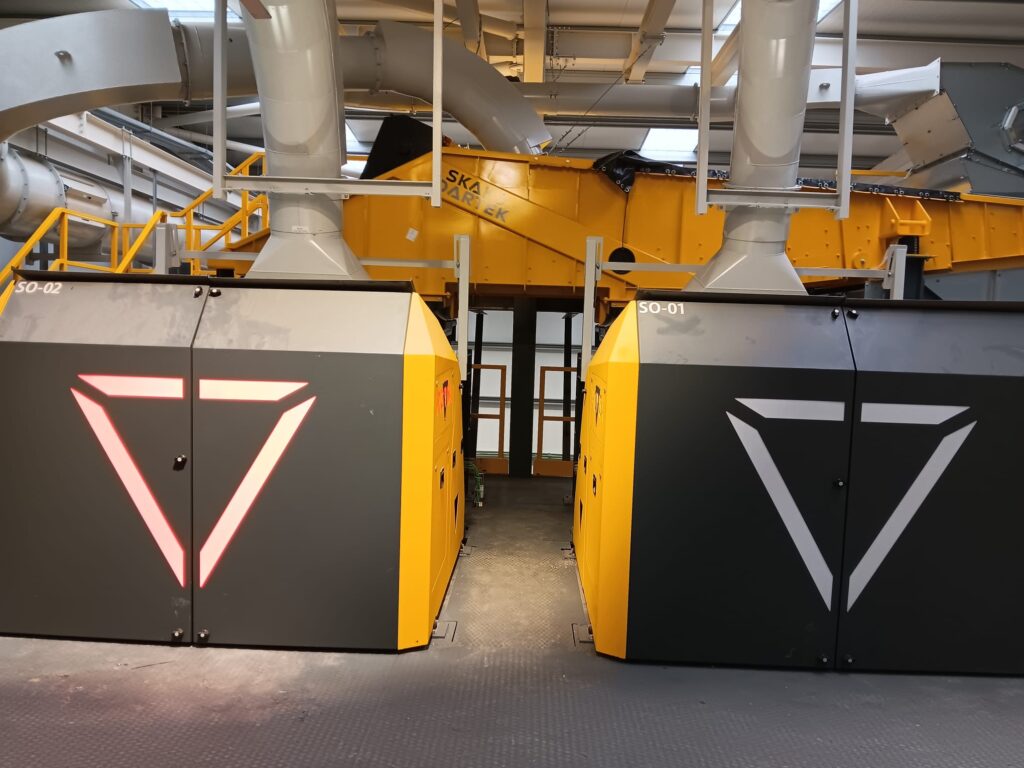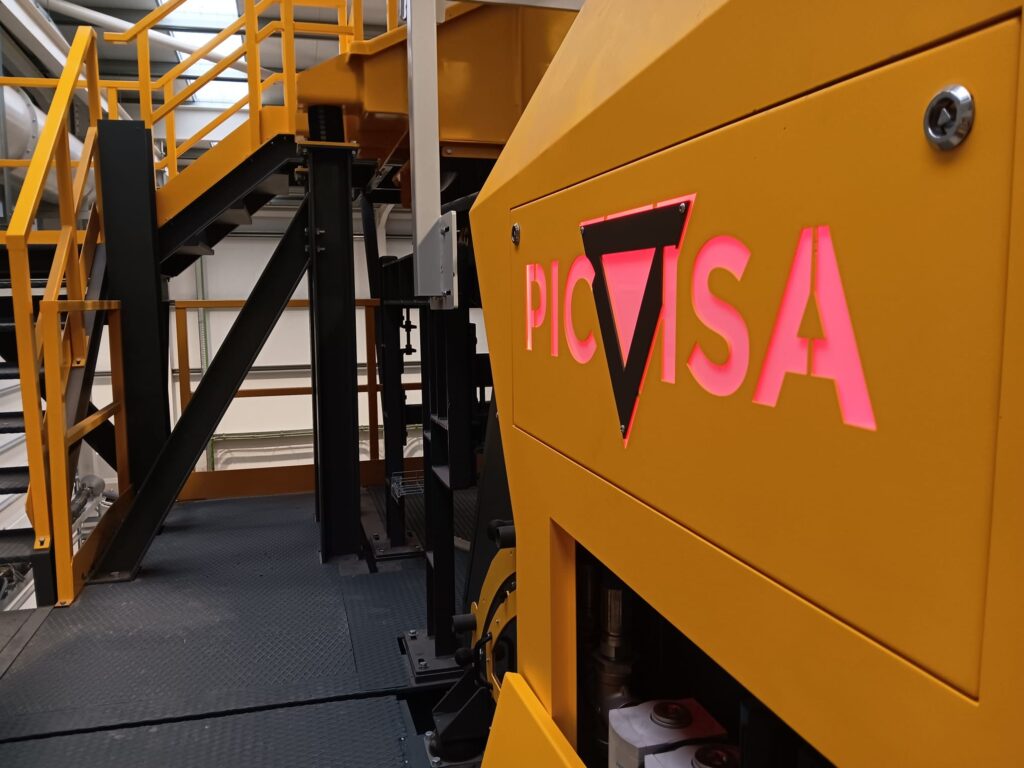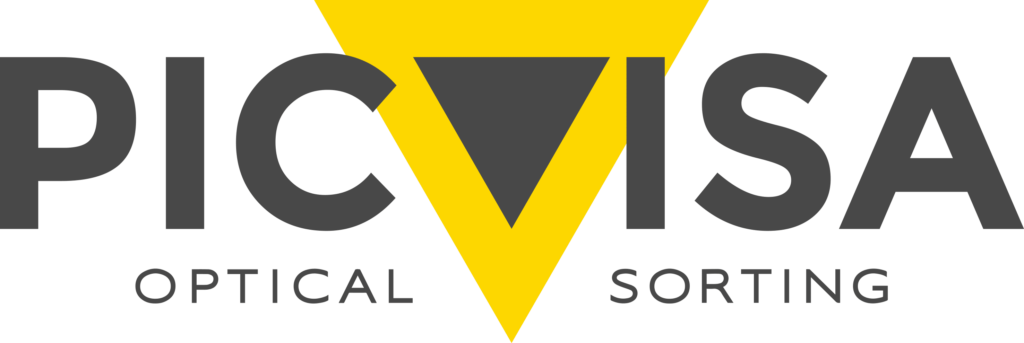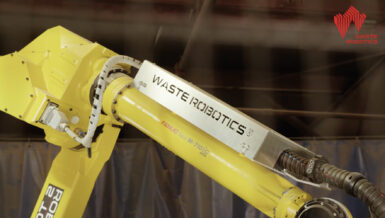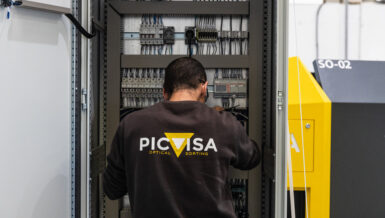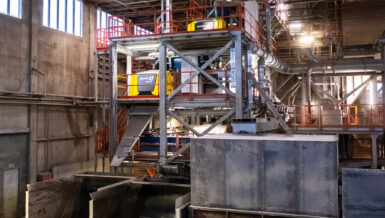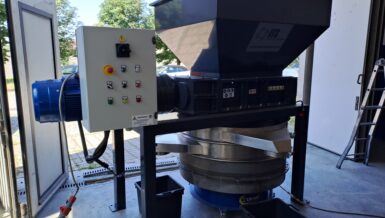Comprehensive and Optimized Process
The REVIMON plant is equipped with a dual hopper system enabling continuous feeding and efficient dosing of material, ensuring optimal handling and uninterrupted workflow. Sensors monitor hopper levels, automating the feed and allowing operational flexibility.
Pretreatment
Material entering the process undergoes meticulous sorting, starting with magnetic separation that efficiently removes ferrous metals. The plant includes primary and secondary manual selection cabins to eliminate large contaminants such as plastics, ceramics.
The double-deck screening system at REVIMON separates glass fragments by size, directing larger pieces through roller milling to ensure uniformity. A conditioning process then friction-separates residual labels and impurities, significantly improving the purity of the glass fraction.
Drying stage
REVIMON is located in a very humid environment and to ensure the best recovery and purity levels all material runs through a dryer to ensure the best conditions for thee next steps of the process.
Granulometric Precision
Post-conditioning, the glass undergoes further refinement through a flip-flop sieve, extracting fine particles (0-8mm), which can be adjusted based on client specifications. This sieving step precedes the inductive separator, designed to meticulously isolate non-ferrous metals such as aluminum, further increasing the purity of the glass stream.
Non Ferrous metals extraction
Once material is properly sized, non-ferrous metals are extracted by means of an Eddy Currents that ensures no metal contamination.
Light material extraction
Once material is free from bulky contaminants and metals material runs through a densimetric stage to remove light material contaminants such as light plastics and paper.
Optical Sorting Excellence
A standout feature of REVIMON is its advanced optical sorting array. Prior to the optical sorting cascade granulometry is divided into two sizes to optimize the performance of the optical sorters. Comprised of five high-performance optical separators organized in a cascade setup, this system achieves exceptional accuracy in distinguishing between contaminants (KSP), colored glass, and clear (Flint) glass. This sorting precision ensures an impressive contamination level below 50 ppm, meeting rigorous industry standards.
Quality Assurance and Sustainability
To guarantee the highest quality, the process culminates in a rigorous quality control phase, ensuring optimal purity before final dispatch. Moreover, the entire plant operation is managed by a sophisticated SCADA system, automating and optimizing each stage of the recycling process.
The REVIMON facility exemplifies sustainability in action, significantly enhancing the lifecycle of glass packaging through superior sorting technologies. By choosing PICVISA’s cutting-edge solution, REVIMON not only elevates recycling efficiency but also contributes meaningfully to the circular economy, making substantial environmental impacts through the recovery of high-quality recyclable glass materials.
